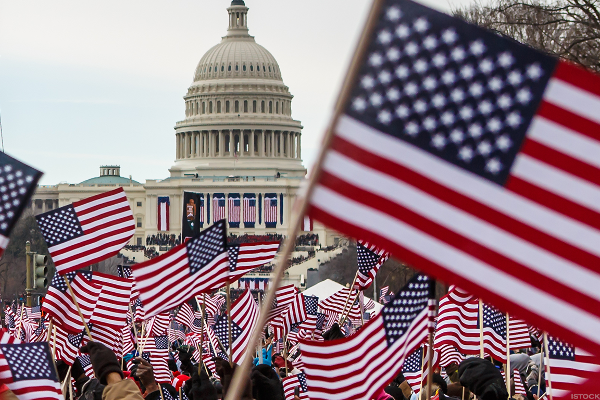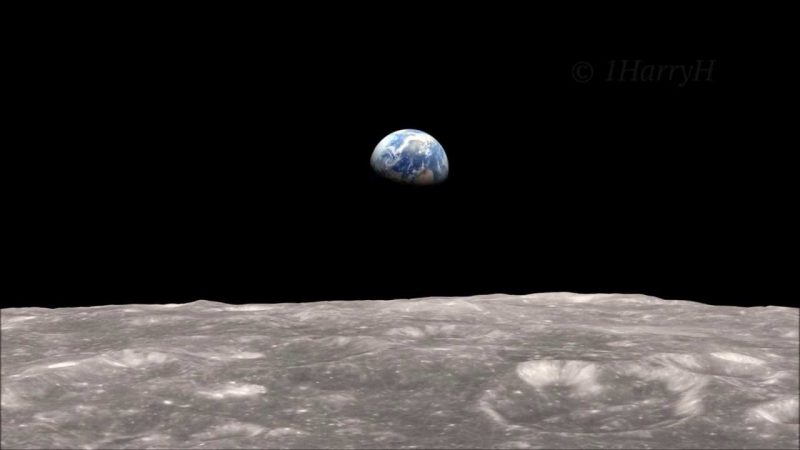Frank Borman was the least poetic of the Apollo 8 astronauts, the first to orbit the moon and see the entirety of the earth from space. Borman was so mission-oriented he didn’t want to take a TV camera with them. As fate would have it, they took the most famous and influential photo of the 20th century, ‘Earthrise.’
To his credit, Borman admitted he was wrong, and said after the mission: “I think we will eventually through space exploration move away from totally nationalistic interests, and in some way develop a closer relationship among the people of the earth. I really believe that.”
On the other hand, the astronaut who actually took the photograph, William Anders, said recently:
“I don’t think the Apollo program has yet brought as worldly a view to humankind as I had hoped. And even today when I hear people chanting that we ought to go on to Mars, I’m thinking, well, why don’t we get our act together here on earth first, and go to Mars as human beings, not as jingoistic Americans, or Chinese or Russians or Indians. Let’s just do it as human beings.”
 If Elon Musk and Jeff Bezos have their way, the abomination of space tourism will lead the way, taking the world’s economic disparity to literally celestial levels. This trend was epitomized last year when the odious Musk sent one of his sports cars into orbit around the sun.
If Elon Musk and Jeff Bezos have their way, the abomination of space tourism will lead the way, taking the world’s economic disparity to literally celestial levels. This trend was epitomized last year when the odious Musk sent one of his sports cars into orbit around the sun.
As one pundit put it, “So how did we get here: the heavens navigated by a dummy astronaut in an electric car, with a handy note for aliens – “Made on Earth by humans” – imprinted on the circuit board?”
If humankind doesn’t change course, it should read, “Made on a decimated planet by degenerate man.” This is what happens when you meld nationalism with capitalism.
Why has there been so little psychological change since the Apollo moon missions? Why does the tribalism of nationalism, driven and riven by greed, power and selfishness (as embodied by the poor excuse for a man in the White House) dominate this beautiful planet even more than they did in 1968?
It’s philosophically absurd to assert that “The Left Needs Its Own Nationalism,” as John Judis and David Leonhardt) do in the New York Times.
They give the usual blather as if it was new insight: “The perception of common identity is essential to democracies and to the modern welfare state, which depends on the willingness of citizens to pay taxes to aid fellow citizens whom they many never have set eyes upon.”
Essentially, the Judis critique rests on the straw man of “liberals and social democrats dismissing the nationalist reaction to globalization” (italics mine). Speaking out of the other side of his mouth, Judis then admits, “Trump’s corporate tax cut accelerates globalization’s race to the bottom.”
No reasonable person dismisses the nationalist reaction, which poses a real and present danger to humanity. Rather, Judis and Leonhardt are dismissing the capacity of ordinary people to understand and respond to the global reality by calling for a “progressive nationalism,” which is like calling for a “progressive tribalism.”
The inability of journalists to see beyond the tribalism of nationalism, and envision new forms of political organization, based on our de facto global culture and civilization, represents an egregious failure of imagination. By trying to beat Trump’s atavism with a kinder, gentler nationalism, they play into the hands of jingoists like President Trump.
In his United Nations speech last month, America’s laughingstock of a president urged the world “to reject the ideology of globalism and accept the ideology of patriotism.”
That neatly squares with Juris’ self-flagellating prescription for progressives: “The decline of liberal and social-democratic parties is a result of their inability to distinguish what is legitimate and justifiable in nationalism from what is small-minded, bigoted and contrary to the national interest.”
It’s as stupid to speak of ‘good nationalism’ and ‘bad nationalism’ as it is to make a ‘nuanced’ distinction between ‘good tribalism’ and ‘bad tribalism.’ Nationalism is tribalism, and tribalism/nationalism, though it once had pride of place in human life, has become an evil that has to be faced at the psychological, emotional and political levels.
As the Donald said about Jamal Khashoggi, the journalist who was tortured, murdered and dismembered in the Saudi consulate in Istanbul, “It wasn’t an American.”
That’s right, “it’s.”
Fellow feeling that accords the same basic humanity and human rights to people beyond one’s borders includes and enhances the cooperative bonds between people within one’s borders.
Identifying oneself first as an American or any other damn thing however, ends up diminishing and denying fellow feeling within one’s borders. As we are witnessing in America, nationalism eventually and ineluctably degenerates into factional tribalism.
Martin LeFevre

